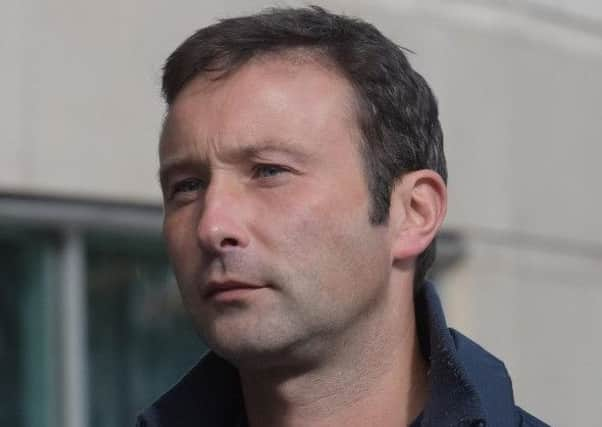Bail scandal: Police silence on missing terror suspect '˜not good enough'


Damien Joseph McLaughlin is due to stand trial next month on terrorist charges including supplying a car to dissident republicans who gunned down prison officer David Black as he drove to work on the M1 in November 2012.
The 40-year-old, from Kilmascally Road in Dungannon, had spent time on remand but was granted bail in May 2014, with conditions requiring him to sign bail at a police station five times a week.
Advertisement
Hide AdAdvertisement
Hide AdHowever, it emerged during a court hearing in Belfast on Friday that McLaughlin has not signed bail since November 18.
The court also heard that police called to the bail address in west Belfast on December 23 and found no sign of the accused. Milk that was four weeks out of date was discovered in the fridge.
McLaughlin has pleaded not guilty to charges including aiding and abetting murder.
• See below for links to more stories on this
The News Letter on Sunday asked the PSNI the following questions:
Advertisement
Hide AdAdvertisement
Hide Ad• Can you explain why Damien Joseph McLaughlin has not been seen by police in seven weeks?
• How did this happen?
• What are police doing about the situation?
• Have their been media appeals about this man?
• Has the PSNI spoken to the Garda about this?
In response, a PSNI spokesperson simply said: “We cannot comment on named individuals. We have nothing further to add than what has been disclosed at court on Friday.”
The Garda also issued a similar statement, saying it does not comment on named individuals.
But DUP MP Sammy Wilson said the response from the PSNI was ”simply not good enough”.
Advertisement
Hide AdAdvertisement
Hide AdHe added: “This is a complete cop out on the part of the PSNI. Perhaps they do not want to draw attention to their own incompetence.”
Mr Wilson claimed that both the police and the judicial system were “equally at fault” in this instance, adding: “It appears the police have been lax in the way they have handled this, but equally the justice system in Northern Ireland is to blame.”
TUV leader Jim Allister described the situation as “totally unacceptable” and claimed McLaughlin had led the courts “on a merry dance”.
He added: “The case is seriously undermining public confidence in the PSNI and the entire criminal justice system. It is imperative that the PSNI is forthcoming. Secrecy in relation to what is going on and why will only add to public disquiet.
Advertisement
Hide AdAdvertisement
Hide Ad“The whole issue of bail, when it comes to cases as serious as this, needs to be urgently re-examined, though it has to be recognised that the imbalanced tilt in favour of the accused in the human rights legislation is a major contributing factor.”
McLaughlin has pleaded not guilty to aiding and abetting the murder of Mr Black, belonging to a proscribed organisation (namely the IRA), possession of articles for use in terrorism (namely a Toyota Camry), and preparation of terrorist acts.
In January 2013, Craigavon Magistrates’ Court heard that police were opposed to granting bail for McLaughlin, and bail was refused. The High Court then refused him bail a month later, after prosecutors said police were afraid that he may flee.
Mr Justice Weatherup in the High Court granted him bail in May 2014. A News Letter report at the time said this had been opposed “amid claims he may flee or reoffend if released”. However, the judge had “held it to be unwarranted for Damien McLaughlin to face a wait of up to two years before trial takes place”.
Advertisement
Hide AdAdvertisement
Hide AdA bid to have his electronic tag removed during the same hearing was rejected. The report quoted the judge Mr Justice Weatherup as saying he considered the tag “necessary”. It was later removed.
In court on Friday, a warrant for his arrest was issued. His bail had been granted on condition that two sureties of £750 each were paid.
Asked if there was any upper limit on the sureties which the judge could have imposed, the Lord Chief Justice’s Office said “while there is no upper limit as to the value at which the surety can be set, the value of the surety must be proportionate and not be such as to render the defendant’s right to bail unachievable”.